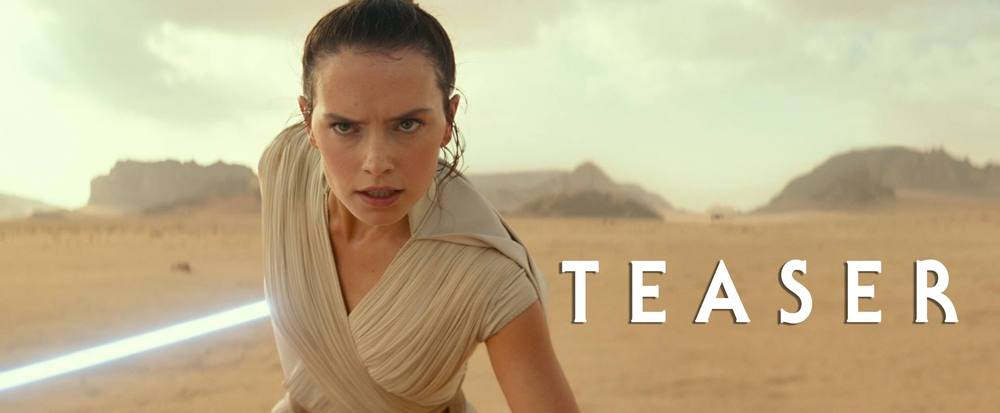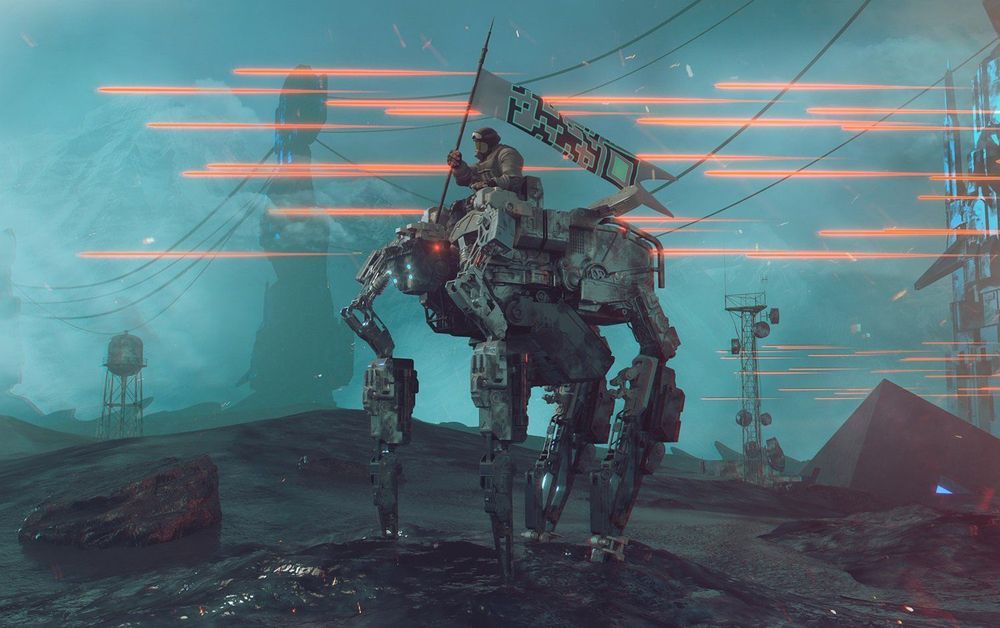Click on photo to start video.
Every generation has a legend. Star Wars: The Rise of Skywalker — in cinemas January. #StarWarsPH



Want to imagine the soldier of the future? A look at video game super-soldiers gives you an ideal glimpse of the desired improvements.
As a US Army military veteran and a longtime gamer, I can attest that while being a soldier and playing one in a video game are very different experiences, there exist several functional overlaps in the goals and tools provided to achieve objectives.
For example, examine the differences and similarities between playing basic training in a game like America’s Army, and enduring an actual enlistment. America’s Army is designed to teach prospective soldiers what to expect both in training and actual combat. While the game version does not nearly prepare a player for the physical and psychological demands of actual basic training and participating in what Army operations entail, it does give an understanding of the objectives one would be expected to accomplish while in service and some of tools available to achieve those goals.

Circa 2012
Switching your phone off for important meetings or trips to the cinema can be a pain in the ass. Victor Johansson has a solution, though: he’s designed the Escape Jacket, which features a Faraday cage in the inside pocket to immediately take your phone off the grid.
UK-based designer Johansson says that the concept is all about you-time. He explains:
During the research phase of this project the idea of “time as a luxury” came to be a main theme. After trying to find ways to give people more time I finally ended up with the idea of removing (connected) time instead since luxury is often more about the things you remove than the things you add. The idea is that as soon as you leave work, or just want a break you put your phone in the inner pocket of the jacket and you terminate all connectivity.
White Rabbit
Recorded Live: 11/8/1975 — Winterland — San Francisco, CA
More Jefferson Starship at Music Vault: http://www.musicvault.com
Personnel:
Grace Slick — vocals
Paul Kantner — vocals, guitar
Marty Balin — vocals, percussion
David Frieberg — keyboards, bass, vocals.
Craig Chaquico — lead guitar
Pete Sears — bass, piano
Johnny Barbata — drums, vocals (on track #4)
Summary:
Recorded after the monumentally successful Red Octopus album release, but prior to 1976’s Spitfire album, this Jefferson Starship concert captures the band performing a diverse set before a hometown audience. With singer Marty Balin back in the fold, the group again contained the three primary vocalists from the Jefferson Airplane, now supported by vocalist, keyboardist, part-time bassist, and ex-Quicksilver Messenger Service member David Frieberg; the young guitar prodigy Craig Chaquico; and the superb rhythm section of bassist/pianist Pete Sears and drummer Johnny Barbata. The group was riding high on the multi-platinum Red Octopus album and was arguably at a new peak of popularity.
This set is not only represented by material from the early Jefferson Starship albums and a couple of Jefferson Airplane classics, but interestingly features live performances of material from Grace Slick’s first solo album plus two of the best tracks Marty Balin recorded with his post-Jefferson Airplane project, Bodacious D F.
The recording begins in progress, with the group wrapping up Vic Smith’s “Drivin’ Me Crazy,” the most infectious track from the obscure Bodacious D F album. This sweeping, heart-breaking song about longing for lost love serves as a perfect vehicle for Balin’s romantically emotive vocals. An extended version of the Jerry Gallup/Craig Chaquico composition, “That’s For Sure” follows, clocking in at nearly twice the length of the studio recording featured on the 1974 Jefferson Starship album, Dragonfly. With barrelhouse piano support from Sears, Grace Slick next takes over with a very bawdy take on “Better Lying Down,” a track from her first solo album, Manhole.
In a rare instance of drummer Johnny Barbata fronting the band, they next deliver “Big City,” the song he co-wrote with ex-Canned Heat guitarist Joel Scott Hill and original Flying Burrito Brothers bassist Chris Etheridge. Here Barbata handles lead vocals on a song soon to be recorded for the group’s next album, Spitfire. Returning to Dragonfly material, David Frieberg next fronts the band on “Come To Life,” a song containing words by the Grateful Dead’s lyricist extraordinaire, Robert Hunter.
The gorgeous, atmospheric ‘Rebirth’ is based on scans of Iceland.

Microsoft has helped build the first device that automatically encodes digital information into DNA and back to bits again.
DNA storage: Microsoft has been working toward a photocopier-size device that would replace data centers by storing files, movies, and documents in DNA strands, which can pack in information at mind-boggling density.
According to Microsoft, all the information stored in a warehouse-size data center would fit into a set of Yahztee dice, were it written in DNA.


Is your AI intelligent or just looking like it’s intelligent? In many ways, this depends on your idea of AI and what it is supposed to do. Scientists at Singapore University of Technology and Design have worked out a way to check for the issue. Open Access Journal: https://www.nature.com/articles/s41467-019-08987-4
Current learning machines have successfully solved hard application problems, reaching high accuracy and displaying seemingly intelligent behavior. Here we apply recent techniques for explaining decisions of state-of-the-art learning machines and analyze various tasks from computer vision and arcade games. This showcases a spectrum of problem-solving behaviors ranging from naive and short-sighted, to well-informed and strategic. We observe that standard performance evaluation metrics can be oblivious to distinguishing these diverse problem solving behaviors. Furthermore, we propose our semi-automated Spectral Relevance Analysis that provides a practically effective way of characterizing and validating the behavior of nonlinear learning machines. This helps to assess whether a learned model indeed delivers reliably for the problem that it was conceived for. Furthermore, our work intends to add a voice of caution to the ongoing excitement about machine intelligence and pledges to evaluate and judge some of these recent successes in a more nuanced manner.
Hadean wants to help build massive simulated worlds.